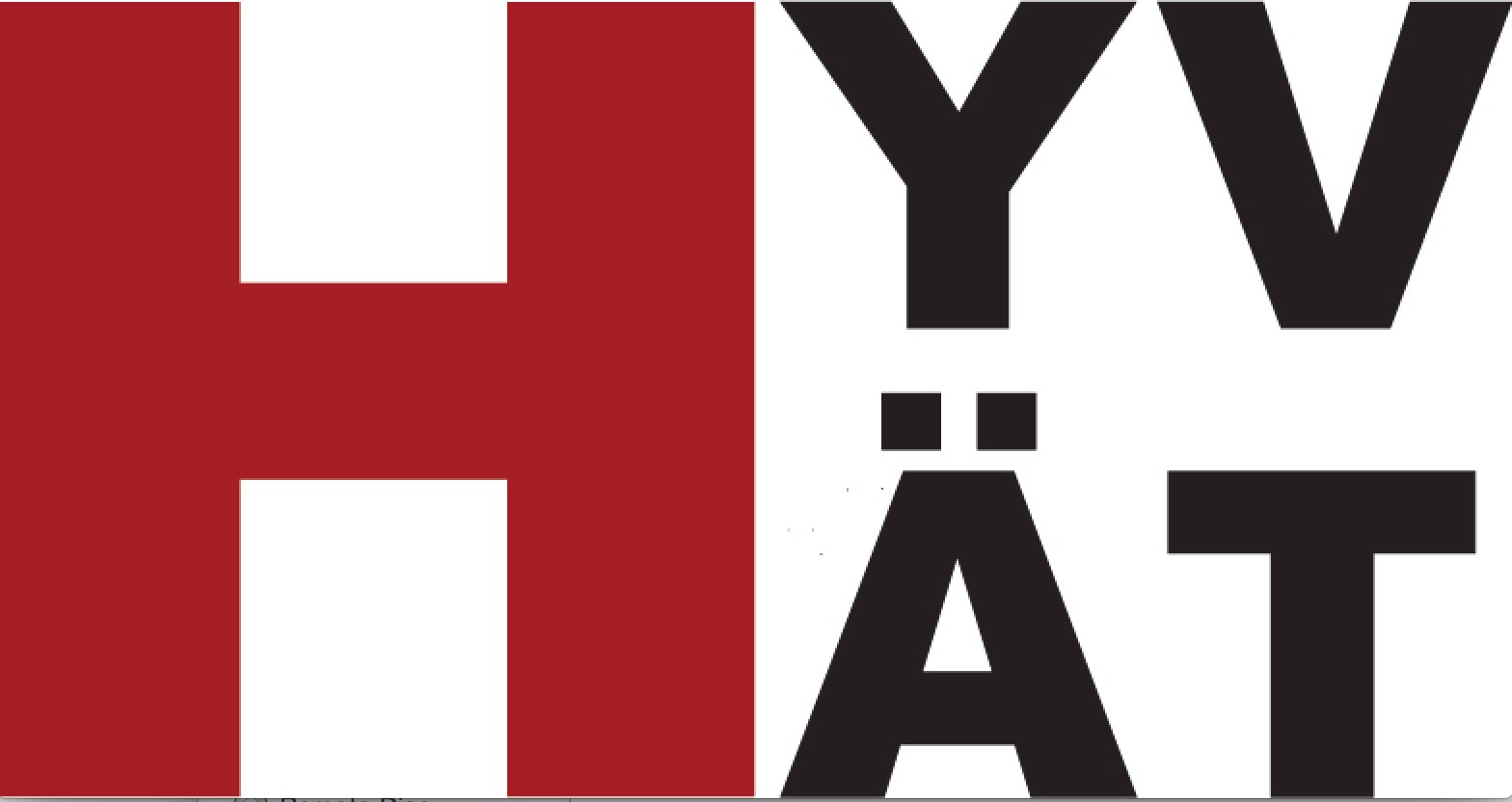
Below you will find the results of our recent survey, which collected data from doctoral students in all the programmes and all the graduate schools of the University of Helsinki. The respondents were asked to fill in general informations about their studies such as the year they have begun as doctoral student and to which doctoral school and doctoral programme they belong.
These results mostly pertain to the main question asked during the survey which was : “What are the biggest concerns to you as a doctoral student at the University of Helsinki?” Respondents were allowed to choose only three answers from a total of 10 possibilities. Some people have criticized this way of doing by pointing out that these 10 items were “all issue at the University” or that this way of doing would not yield ‘good data’, but as we will show, this was not the case for everybody. We believe that our analysis will be useful in identifying area where attention is need the most. The respondents also had the choices to write a free-form comment or question, which we are still analyzing. The quotes in the text below are taken from this part of the survey.
“I should have ticked almost every box above to be truthful…
General data
The survey covered over 640 respondents from all doctoral programmes offered by the University. While these results are impressive, only a small portion of the officially registered students (Fig. 1) actually answered to our request to help us identify which topics they are concerned about. It has come to our attention that some students did not receive the invitation to participate to our survey through the mailing lists of the doctoral schools.
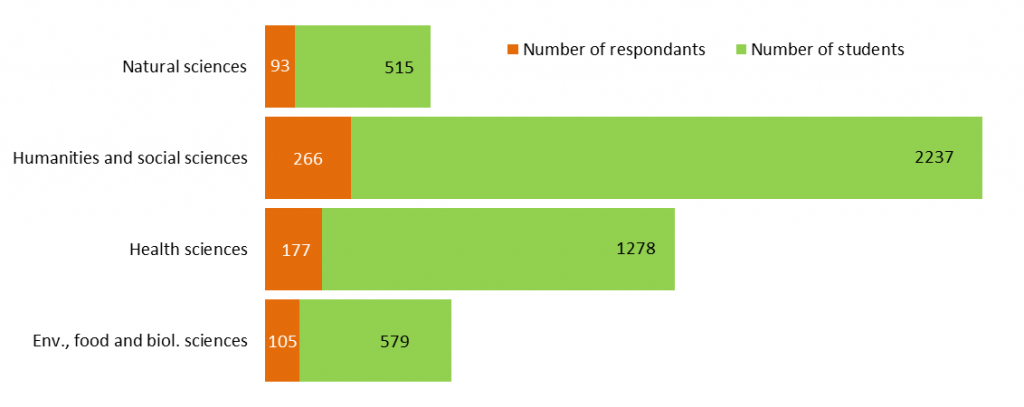
An important topic of discussion in the free-form question of the survey was the status of doctoral students at the university and more specifically the way student are financed during their studies. While, as we can see below (Fig. 2), many student get their funding through University projects (employee), it varies greatly among the doctoral schools and an important portion of students are not financed through grants or employment but through external sources such as Kela and Sosiaalitoimisto, or are supported by the revenue of their partners or their own savings.

Your biggest concerns
The main question of the online survey referred to the principal concerns that students have the present time in their study. Below is a representation of the distribution of answers among the ten possible choices (Fig. 3). It’s worthwhile pointing out that 5% of the respondents did not select any of the issues supplied as choices in the survey.
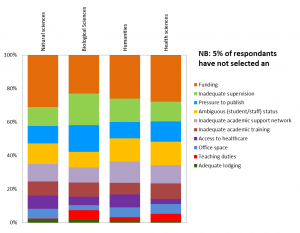
We decided to focus our analysis on the issues that got selected by the largest number of students, which were issues with funding and with supervision.
Funding as an issue
“The funding [for my doctoral programme] has changed every year since I enrolled. It is really worrisome to hear rumors about changes and not knowing the facts
When it gets to funding, almost two thirds of respondents (Fig. 4) agree that it is one of the primary problem. Even students on grants and students employed by the University share this concern.
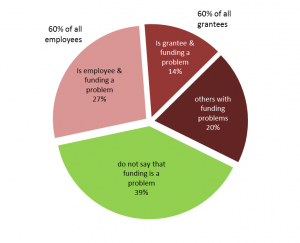
The issue of funding is however not as pervasive for students from all doctoral schools (Fig. 5). Interestingly, in the doctoral school for Natural Sciences, where there is the highest proportion of students working on salary, there is also the highest proportion of respondents selecting funding as an important issue.

The results from the different doctoral programmes (Fig. 6) in the four doctoral schools are also not equal in term of funding issues.
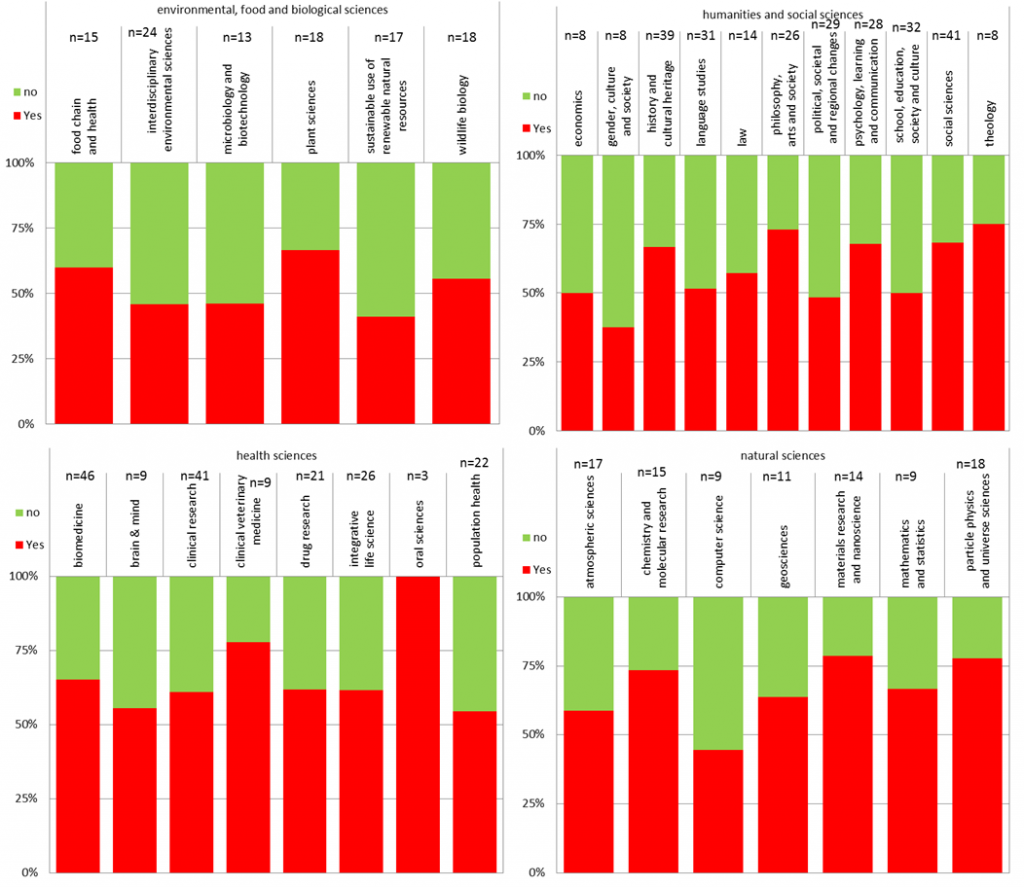
Supervision as an issue
Coming in second place as one of the most selected issue is the topic of supervision. There are two main aspect we can think of when it comes to supervision in the settings of the University. On one hand, supervision is a critical aspect of doctoral students’ studies and formation as experts because we work at the edge of knowledge and we need to be trained by people who are themselves experts. On the other hand, the close relationship required by academic research in some fields means that a lot of students are working day in and day out with their supervisors and in case relations are not cordial, it can become a serious burden for the student and hamper their progress in their studies.
Our results show that the majority of students do not consider supervision as an issue in their studies (Fig. 7). Worryingly however, almost half of the students from the Doctoral School of Environmental, Food and Biological Sciences who have answered to our survey are not satisfied with their supervision (Fig. 8, two programmes lead the way with 19 out 37 students having checked supervision as an important issue). Three programmes in the school of Humanities and Social Sciences also show higher dissatisfaction rates with regards to supervision than the other although these make up only a small portion of students.
“Students have no rights whatsoever when relationship with supervisor gets bad. […]

“Supervisors should be required to demonstrate adequate understanding of the project they have promised to supervise or at least willingness to familiarize themselves with the topic.
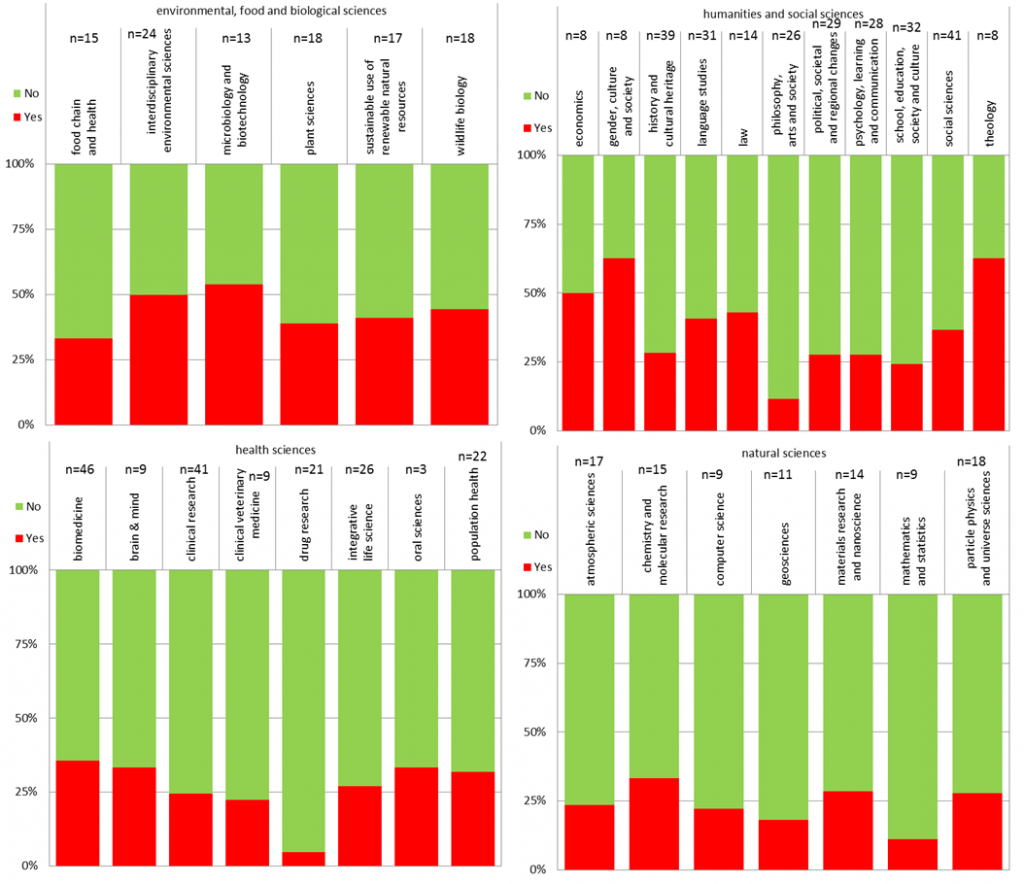
Perspective
One needs to keep in mind that the low response rate, which average at a little over 15%, precludes from drawing any strong conclusions from this data, but a survey like this is a good place to start for our young and growing Association. Nevertheless, we wish that the doctoral programs and schools will pay particular attention to the matters put in evidence by our survey. Eventually, we hope that the proper tools and policies will be developed to ensure adequate supervision and funding, especially in those programs where the doctoral students are facing problems.
A translated version of this post will soon be made available in Finnish.
If you want to obtain the raw data of the study, please email the author of this post at first.lastname@helsinki.fi
